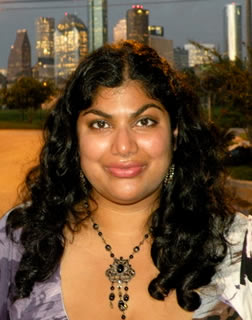
Mullins Prize 2016: Monamie Bhadra
Nation-Building Civic Epistemologies in India through Nuclear Politics
For the 2016 Mullins award the committee received a total of 22 papers. In terms of gender distribution, 13 out of these 22 were papers written by women PhD students. In relation to geographical diversity, 15 out of the 22 papers were from students based in the US, 2 were from Canada, 1 from Israel, 1 from New Zealand, 1 from Italy and 1 from Denmark.
The committee selected four criteria to evaluate the submitted pieces: contribution to the STS field, depth of research, writing quality and ethical/political relevance of the piece. Each aspect was scored, and each paper was evaluated by two reviewers. After a first round of evaluation, we selected the three papers with the highest score and evaluated them again.
After reviewing the material the committee unanimously selected the paper entitled ‘Nation-Building Civic Epistemologies in India through Nuclear Politics’ as the winner of the 2016 Mullins Award. The author of this unpublished piece is Monamie Bhadra, Student at the Human and Social Dimensions of Science and Technology PhD Program at Arizona State University.
Bhadra’s paper has a great handle on relevant literature that revises a leading STS theoretical approach, through very thorough and nuanced engagement with an empirical case. As a well-researched and well-written piece it demonstrates the dynamic formation and contestation of civic epistemologies in India. In particular, the paper contributes to de-locating the discussion about civic epistemologies in a ‘non-western’ context. With this move it brings forward questions about the assumptions that sustain the idea of democracy at the base of the concept of civic epistemology. It also offers an interesting discussion of the role of states (in their diversity) in the constitution of political controversies surrounding science.
This article focuses on the politics of nuclear power in India, with an emphasis on government policy and grassroots activism, in three phases since the country’s independence. It argues that STS scholars need to rethink our understanding of the concept of civic epistemology—the way that a country understands relevant knowledge and expertise for policymaking—when we apply it to younger democracies including India. The committee wants to highlight three particular aspects of this paper. First, it cautions us to consider the research on which our concepts and theories are based, and reminds us how and why research beyond our usual stomping grounds of the United States and Europe really matters. Second, the article is based on a significant amount of novel research (and the paper clearly displays the fruits of this research extremely well). This research spans ethnography, interviews, and document collection and analysis. Finally, it is worth noting that the piece is well written.
Mullins Award Committee members: Tania Pérez-Bustos (Chair), Daniel Breslau, Shobita Parthasarathy, Kellie Owens
Acceptance
I am very honored to receive the 2016 Nicholas C. Mullins Award for my paper Nation-Building Civic Epistemologies in India through Nuclear Politics. I would like to acknowledge the generous support of the American Institute of Indian Studies and Arizona State University, as well as Clark Miller and Ed Hackett, for their guidance and feedback. I would also like to convey my heartfelt appreciation to members of the Indian anti-nuclear community for their time, compassion, humor and expertise.
Bio
Monamie Bhadra is a doctoral candidate at Arizona State University’s Human and Social Dimensions of Science and Technology program. She will soon begin a post-doctoral position at The Ohio State Univeristy’s Department of Comparative Studies as an American Council of Learned Societies/Global STS Fellow. Her research analyzes the political and cultural ramifications of energy transitions in the developing world by bringing together insights from science and technology studies, postcolonial studies, and democratic theory. Her dissertation, which she will defend in July 2016, explores contemporary politics over nuclear energy in India, particularly the politics of knowledge around the rise of anti-nuclear activism, to gain a better understanding of the meanings and practices of Indian democracy.

